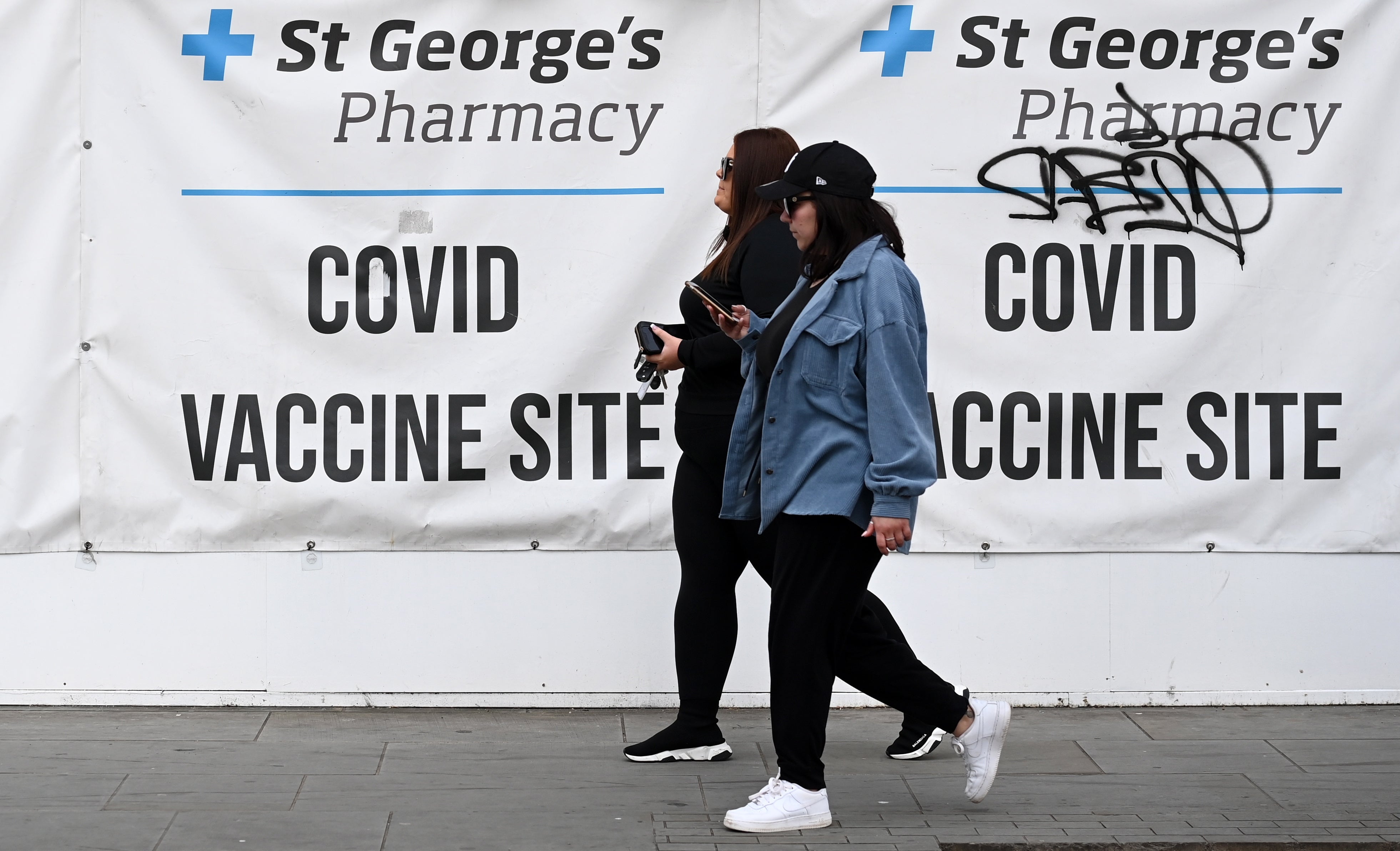Omicron lasts 3 days less than Delta in those who got booster shot, study finds
Study finds differences in symptoms experienced by those infected with Omicron and Delta

Your support helps us to tell the story
From reproductive rights to climate change to Big Tech, The Independent is on the ground when the story is developing. Whether it's investigating the financials of Elon Musk's pro-Trump PAC or producing our latest documentary, 'The A Word', which shines a light on the American women fighting for reproductive rights, we know how important it is to parse out the facts from the messaging.
At such a critical moment in US history, we need reporters on the ground. Your donation allows us to keep sending journalists to speak to both sides of the story.
The Independent is trusted by Americans across the entire political spectrum. And unlike many other quality news outlets, we choose not to lock Americans out of our reporting and analysis with paywalls. We believe quality journalism should be available to everyone, paid for by those who can afford it.
Your support makes all the difference.People who have been vaccinated and received a booster shot recover from an Omicron infection three days earlier than those infected by the Delta variant, showed a new study.
Differences in the symptoms experienced by those infected by the Omicron and Delta variants were also revealed in the research published in The Lancet journal on Thursday.
The study found people who had two doses of the Covid vaccine, but no booster shot, were free from Omicron symptoms in 8.3 days, compared to 9.6 days for Delta.
Among people who received two vaccine doses as well as a booster jab, however, symptoms lasted for just 4.4 days for Omicron infections and 7.7 days for Delta.
The duration of severe Covid symptoms was also found to be shorter when Omicron was prevalant compared to when Delta was dominant, with the average prevalence of Omicron being two days shorter than Delta.
“A third dose of vaccine was associated with a greater reduction in symptom duration in participants infected during Omicron prevalence compared with those infected during Delta prevalence,” the researchers wrote.
Covid patients infected by the Omicron variant are significantly less likely to lose their sense of smell compared to those who contracted the Delta variant, said researchers - confirming previous findings that Omicron infections are less severe.
People infected with Omicron are significantly less likely to lose their sense of smell compared to those infected with the Delta variant – confirming previous findings that Omicron infections are relatively less severe.
Scientists, including those from King’s College London in the UK, assessed data from the smartphone app ZOE in which over 63,000 vaccinated people in Britain from the ages 16 to 99 self-reported their Covid symptoms between 1 June 2021 and 17 January 2022.
They compared a matched sample of about 5,000 participants who were infected when the Omicron variant was prevalent to the data of the same number of participants who fell ill with Covid symptoms during the Delta wave in the UK.
The research found that sore throat was more common when Omicron was prevalent than during the Delta wave.
“Loss of smell was less common in participants infected during Omicron prevalence than during delta prevalence,” scientists said in the study.
The severity of the Omicron variant was also less compared to Delta and had a lower hospital admission rate, researchers confirmed.
Omicron variant infections also have less involvement of the lower respiratory tract and reduced probability of hospital admission.
“The UK has now updated its list of symptoms but has not issued any proper guidance on how this should be used or observed,” Tim Spector, one of the authors of the study, told The BMJ .
“Also, the order in which they are presented is still misleading, as it suggests the classical symptoms are still the most important, when in fact they are the minority of symptoms and often only appear after several days of infection,” Dr Spector added.
Pointing to the shorter duration of symptoms with Omicron, he said five days was an adequate amount of time for people to isolate if they have symptoms.
The complete effects for most of the Omicron mutations, however, are not known, the scientists explained, adding that characterising differences in symptoms between the two variants could help understand potential effects of future variants of concern.
The researchers, citing limitations, could not compare symptoms, hospital admission risk or infection duration in the two variants for unvaccinated individuals as most participants were vaccinated.
They added that information on whether a patient was infected with Omicron or Delta was based on the prevalence of these variants in the UK population at the time and not based on individual sequencing from these individuals.
“Our data indicate a narrower spectrum and faster resolution of symptoms with Omicron, along with a milder presentation than with Delta, all of which concur with the view that Omicron seems to be much more transmissible than previous variants, but less severe in vaccinated populations,” they added.
Join our commenting forum
Join thought-provoking conversations, follow other Independent readers and see their replies
Comments